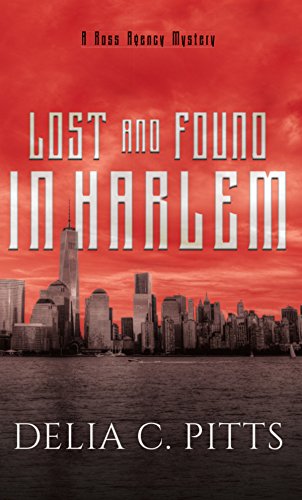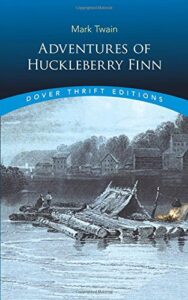Lost and Found in Harlem received a 4+ star review, making it an IndieReader Approved title.
Following find an interview with author Delia C. Pitts.
What is the name of the book and when was it published?
I have published two books in my private eye mystery series. The first, Lost and Found in Harlem, was published in October 2017. The sequel, Practice the Jealous Arts, was published in February 2018.
What are the book’s first lines?
The first lines of Lost and Found in Harlem are: “The fire at the Auberge Rouge gutted me. I didn’t have much before the fire – a barber’s kit, an acquaintance or two, dignity measured by the eyedropper. The Rouge disaster took everything I had. But it gave me a chance.”
What’s the book about? Give us the “pitch”.
Lost and Found in Harlem is a contemporary murder mystery in the noir tradition with a unique approach to crime and detection. As the protagonist amateur detective SJ Rook discovers, a hard-pressed urban neighborhood can have many challenging puzzles and small but dangerous cases that fall below the radar of the police. Rook is a loner, but he’s not on his own. He is joined in his search for a brutal killer by the dynamic father-daughter duo who run the Ross Detective Agency. Norment and Sabrina Ross are savvy, tough, funny, and just as mysterious as the cases they pursue.
What inspired you to write the book? A particular person? An event?
Several people inspired me to write the book. I have a cousin Esther in Chicago who founded a small security agency on the South Side back in the 1970s. She was my inspiration for a tough, smart woman running a detective firm. My adult twin sons are mixed-race, so creating a private eye hero who resembles them was an easy call. Then last year, a friend experienced the temporary loss of her beloved cat. The cat came back after a week of wandering and much angst and suffering by my friend. It struck me then that all neighborhoods had these little problems and mysteries. Ones that the police are not interested in nor equipped to address, but which cause real anguish and turmoil. So, I invented a community detective agency and a tiny clutch of investigators dedicated to helping their neighbors resolve those problems and tensions that beset us all.
What’s the main reason someone should really read this book?
This book will appeal to readers who enjoy tightly-plotted murder mysteries with a touch of lightness, but plenty of intrigue and suspense. I had a blast creating this world of neighborhood tensions and determined but flawed detectives who grapple with the darker impulses driving human interactions. I think the fun I experienced is conveyed in the novel and I hope others will find it as entertaining to read as I did to write.
What’s the most distinctive thing about the main character? Who-real or fictional-would you say the character reminds you of?
The voice of private eye SJ Rook is distinctive and compelling. He is mixed race – African American and Mexican American – from Texas. He has multiple ambiguities: name, race, ethnicity, language, color – everything straddles one border or another. A newcomer to Harlem tackling the most complex and inclusive city in the world, Rook’s first-person voice is mature and terse, but warm. Smart, but not heavy with book learning. A little weary, a bit wounded, but still suffused with optimism. Rook is a romantic who’s been disappointed more than once in life, but he is still in there slugging. A bit of Raymond Chandler and a lot of Langston Hughes goes into the mix that is Rook’s distinctive voice.
When did you first decide to become an author?
I’ve been writing all of my life. In excavating through the piles of family documents in our basement, I recently came across a story I wrote in second grade. It was inspired by the Black Stallion books of Walter Farley, a fan fiction pastiche long before I knew there was such a thing. After a career in the U.S. diplomatic service and then university administration, I retired and returned to my first love, fiction writing. I published over 60 fan fiction stories which was an excellent warm-up to the craft of writing original novels.
Is this the first book you’ve written?
This is the first book I’ve published although I published dozens of fan fiction short stories and novels over the past five years. That effort was so warmly supported by the fan community that I really learned a lot about the craft of writing, everything from plotting, dialogue, and action choreography to character development and world-building. Fan fiction was a tremendous platform for exploring the craft and expanding my skills.
How much time do you generally spend on your writing?
When I’m working on a novel, I try to put in at least four hours a day at the laptop, usually in the late afternoon and early evening. I’m currently working on the outline for the seventh book in the Ross Agency mystery series. Private eye Rook has really taken over my imagination and he pushes me to greater efforts to get his stories out there. In addition, I’m working on an idea for another mystery series, this one set in the Bronzeville neighborhood of Chicago, near where I grew up. I’m contemplating a female sleuth for that series. I see her as solitary, raising an adopted kid, solving neighborhood problems much as Rook and the Rosses do in Harlem.
What’s the best and the hardest part of being an indie?
The best part is definitely getting to make your own decisions. I loved collaborating with the professional editors, designers, and marketing specialists to bring this book to life. The process of describing my vision for the novel’s cover to the capable artists who made it happen was a peak experience. The day I saw the fully-realized cover for the first time, I wept with joy. The hardest part is figuring out how to market and publicize my book. I have no web skills, few business instincts, and limited funds, so I am really feeling my way as I go along.
What’s a great piece of advice that you can share with fellow indie authors?
Believe in yourself and the power of your creative instincts. Accept guidance, correction, and support, but trust yourself first and last.
Would you go traditional if a publisher came calling? If so, why?
Yes, I would be interested in testing myself in that environment. I’d like to get wide exposure for my novels and I think my central character, private eye Rook, deserves to be broadly read and appreciated. I even see him staring in a cable television series too one day.
Is there something in particular that motivates you?
I think it is of vital importance to hear from authors and characters who are people of color. Our stories are intriguing, vibrant, necessary, and entertaining. I want to join in telling these stories.
Which writer, living or dead, do you most admire?
Toni Morrison. She’s not a mystery writer in the strict sense of the term, but her stories investigate the deepest crevices of the human heart and she gets it right.
Which book do you wish you could have written?
Because of that darned boy’s vibrantly American voice, I wish I could have written Huckleberry Finn!


